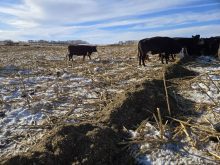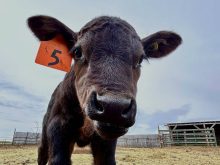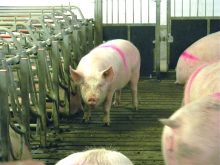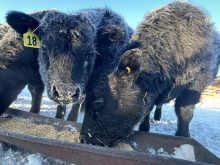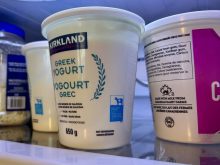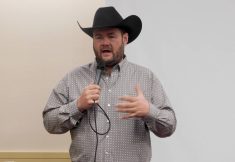Mindful of its aging demographics, the beef sector is using an innovative mentorship program to foster the development of its next generation of leaders.
“The program was designed to develop youths into the leaders we need them to be in the future,” said Jolene Noble, co-ordinator of the Cattlemen’s Young Leaders program.
The program matches youth between the ages of 18 and 35 with a mentor for an eight-month period, and provides funding for travel so the young person can meet with his or her mentor and attend industry events.
Read Also
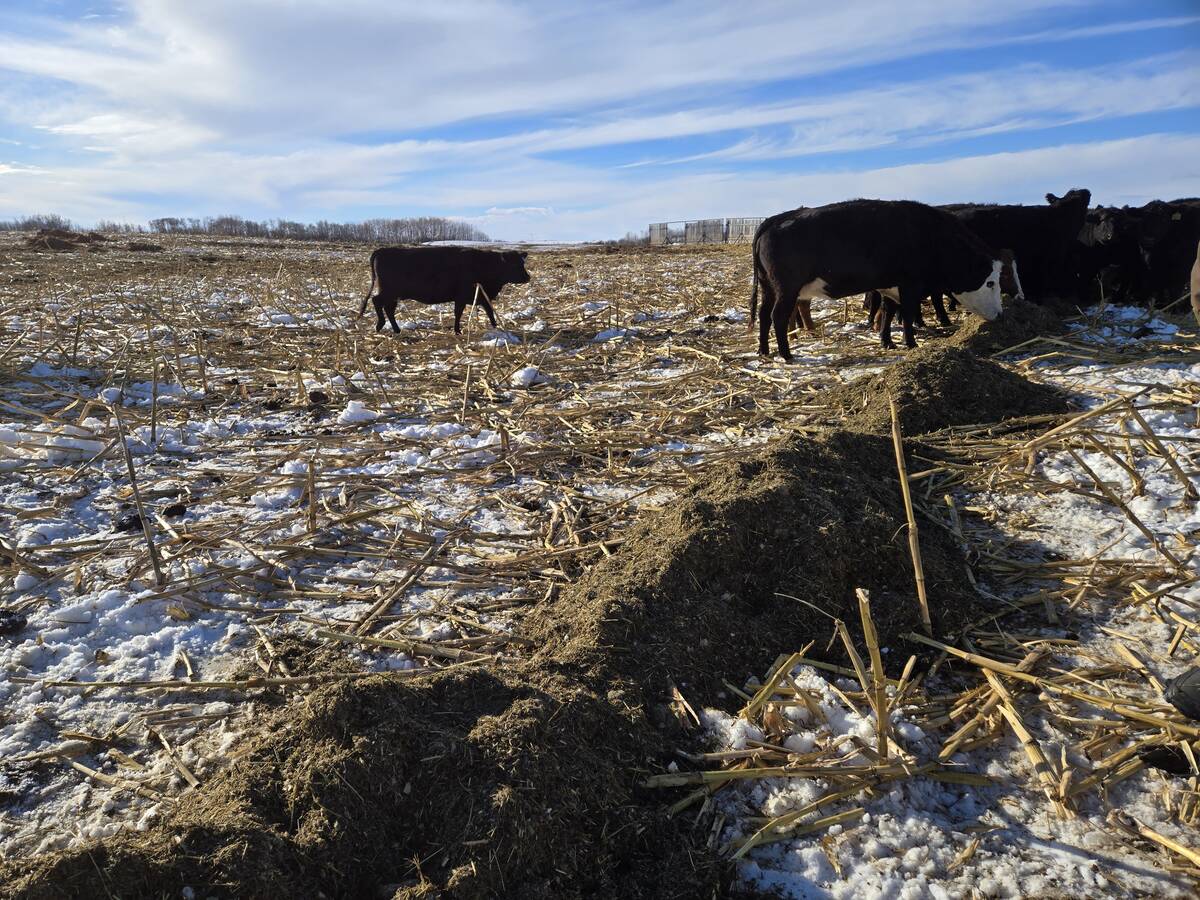
Winter grazing tour highlights cost-saving mix of cover crops and silage
Discover one beef producer’s strategies to slash winter feed costs — and how to make sure it meets a cattle’s nutritional needs.
“We’re looking for people with passion in the beef industry, and the leadership skills and drive to succeed,” Noble said.
The process starts with an application, and potential participants are brought to the Cattlemen’s Young Leaders’s spring forum, which was held in conjunction with this year’s Canadian Cattlemen’s Association meeting in Ottawa. Finalists are selected after participating in roundtable discussions where they are scored by facilitators and judges. This year, 22 people from across the country attended the forum and 16 were chosen for the program.
One was Kerry Hyatt, who grew up on a cow-calf operation in Ontario and now works for a county in southern Alberta, but wants to one day work in the cattle sector.
“I knew that I loved the industry and I knew that I was passionate about it, but I didn’t know where it fit in my career,” said the 26-year-old, who was paired with Anne Dunford, a market analyst with Gateway Livestock.
She said the pair “hit it off right away,” and are still in touch, even though Hyatt has completed the program. Hyatt, who has an agribusiness diploma and is working on getting a degree, attended several industry events, including travelling to Florida for the National Cattlemen’s Beef Association convention.
“This has been a life-changing opportunity because I never ever realized how much opportunity is in the beef industry for young people — not just producers, but people looking for (other) careers in it as well,” she said.
The program is also rewarding for mentors, said Dunford, adding it’s great to interact with the “young, exciting, vibrant” program participants.
“It kind of gives you a good feeling about the future of the business,” she said.
Dunford said mentors have helped her in her career, and it was a “no-brainer” to volunteer when she was asked to participate if there was a young person keen to learn about the marketing side of industry.
“It just made good sense to have more youth involved in our businesses as we get older,” Dunford said.
While she enjoyed the phone calls and emails, Dunford said face-to-face meetings and taking Hyatt to events were very important.
“It was really nice to be able to take Kerry along on some of my meetings or at conventions so I could open doors for her,” Dunford said.
Since the program launched in 2010, there’s been 36 graduates (in addition to the 16 current participants) and 39 people have served as mentors, Noble said. The number of applications has increased over the years.
Program organizers are looking at ways to extend the learning experience by giving graduates access to governance training, business-skill development, and other areas of learning. They want to send participants and grads out on speaking engagements and to booths at trade shows, and also give them a chance to participate in projects with retailers and Canada Beef.
That’s just the sort of thing Debra Murphy is looking for. Murphy, who farms on a mixed operation near Consort, is one of the 16 people selected for this year’s program in Ottawa.
“A lot of the knowledge I have for our operation is on the crop side, so I wanted to learn a little bit more about the cattle industry,” said the 24-year-old.


